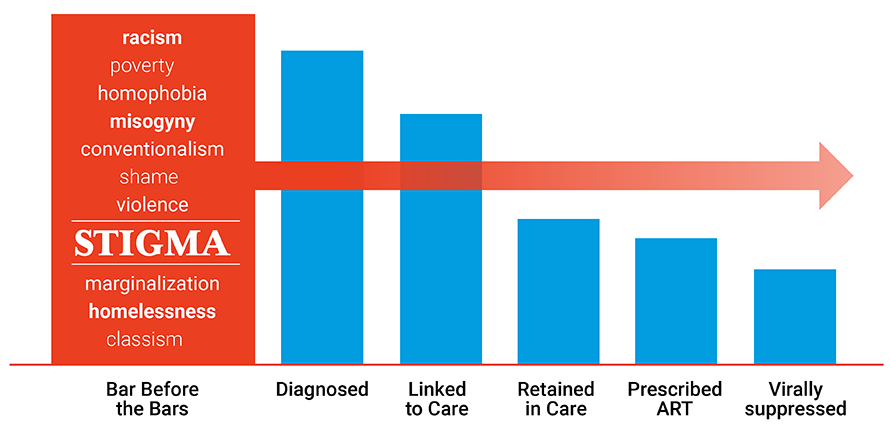Stigma
HIV stigma includes negative attitudes and beliefs about people with HIV. It is the prejudice that comes with labeling an individual as part of a group that is believed to be socially unacceptable. HIV discrimination is the act of treating people with HIV differently than those without HIV.
Stigma and epidemics of sexually transmitted diseases (STDs), notably HIV, have long been intertwined in the United States and countries around the globe. Stigma refers to the social devaluation of people who are different, whether due to conditions that do not affect the majority of a population (e.g., homosexuality, HIV/AIDS, mental illness), or more ordinary conditions that affect many or all in a population (e.g., demographic features tied to age, race/ethnicity, gender). Stigma, in its varying forms, serves to fuel the propagation of STDs, notably within marginalized and stigmatized communities.
